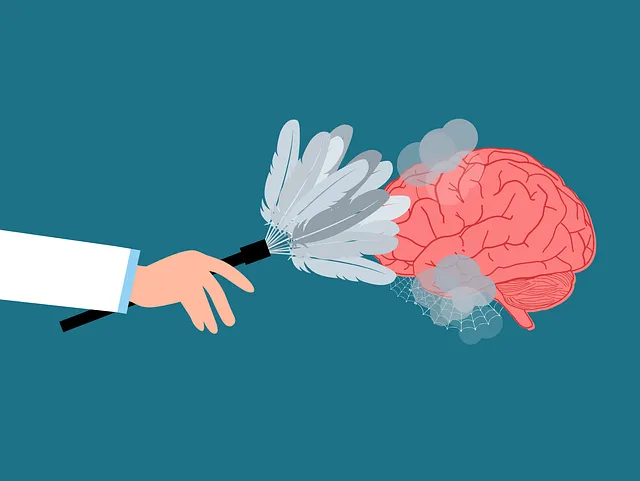Kaiser Permanente mental health locations in Northglenn maintain safety and high-quality care through comprehensive risk assessment that includes Mental Health Policy Analysis, burnout prevention strategies, and emotional healing processes. This proactive approach, integrated with Compassion Cultivation Practices for staff well-being, ensures a secure environment for patients and providers. Continuous improvement guided by data analysis, patient feedback, and culturally sensitive practices enhances treatment effectiveness, fosters resilience, and promotes mental well-being within the community.
In the realm of mental health care, risk assessment and harm minimization planning are indispensable tools for ensuring patient safety. This article explores these critical processes, grounded in understanding risk assessment as a foundational element for safety in mental health settings. We delve into successful implementations at Kaiser Permanente Northglenn, highlighting effective harm minimization strategies. Furthermore, it emphasizes continuous improvement through monitoring and adjustment of risk assessment plans, focusing on best practices at Kaiser Permanente mental health locations Northglenn.
- Understanding Risk Assessment: A Foundation for Safety in Mental Health Care
- Kaiser Permanente Northglenn: Implementing Harm Minimization Strategies
- Continuous Improvement: Monitoring and Adjusting Risk Assessment Plans
Understanding Risk Assessment: A Foundation for Safety in Mental Health Care

Risk assessment is a cornerstone of ensuring safety and quality care in mental health services, including at Kaiser Permanente mental health locations Northglenn. It involves a systematic evaluation of potential hazards and their likelihood to cause harm, enabling proactive measures to mitigate risks. By understanding and implementing robust risk assessment practices, mental health professionals can create a safer environment for both patients and providers, fostering an effective healing space.
This process is not merely a one-time exercise but an ongoing cycle that incorporates Mental Health Policy Analysis and Advocacy, Burnout Prevention Strategies for Healthcare Providers, and Emotional Healing Processes. Regular reviews and updates ensure that risk assessment remains dynamic, accounting for evolving patient needs, new research findings, and changes in healthcare policies. Such a proactive approach aligns with the commitment to excellence in mental health care, enhancing the overall well-being of patients and professionals alike.
Kaiser Permanente Northglenn: Implementing Harm Minimization Strategies

Kaiser Permanente Northglenn has recognized the importance of implementing harm minimization strategies to ensure patient safety and well-being, especially in their mental health locations. With a focus on compassionate care, the organization has integrated Compassion Cultivation Practices into their healthcare model. These practices emphasize mindfulness meditation and self-care techniques as Burnout Prevention Strategies for Healthcare Providers, fostering an environment that supports both patients and caregivers.
By prioritizing harm minimization, Kaiser Permanente Northglenn aims to reduce risks and promote positive outcomes. Their approach includes regular staff training on stress management and resilience, creating a culture where mental health is prioritized. This proactive measure not only benefits the healthcare providers but also enhances the overall quality of care delivered at their Northglenn mental health locations.
Continuous Improvement: Monitoring and Adjusting Risk Assessment Plans

At Kaiser Permanente mental health locations in Northglenn, continuous improvement is a cornerstone of risk assessment and harm minimization planning. Regular monitoring involves analyzing data on patient outcomes, treatment effectiveness, and feedback from both patients and healthcare providers. This process allows for adaptive adjustments to risk assessment strategies, ensuring that plans remain relevant and responsive to evolving needs. By integrating insights from ongoing evaluations, the team can identify areas for enhancement, implement evidence-based practices, and foster a more resilient and culturally sensitive mental healthcare environment.
Cultural sensitivity in mental healthcare practice plays a pivotal role in this continuous improvement cycle. Recognizing the diverse backgrounds and unique experiences of patients, Kaiser Permanente Northglenn adapts its risk assessment plans to accommodate various cultural perspectives and beliefs. Resilience building, another key aspect, is promoted through public awareness campaigns development that educate both patients and communities about mental health resources and available support systems. This holistic approach not only strengthens individual resilience but also contributes to a broader network of community support for mental well-being.
Risk assessment and harm minimization planning are essential components of ensuring patient safety in mental health care. As demonstrated by Kaiser Permanente’s successful implementation at their Northglenn locations, a comprehensive understanding of risk assessment, coupled with continuous improvement strategies, can significantly reduce potential harms. By monitoring and adjusting risk assessment plans, mental health professionals at Kaiser Permanente Northglenn have fostered a safer environment for patients, highlighting the importance of these practices across all mental health care settings.






